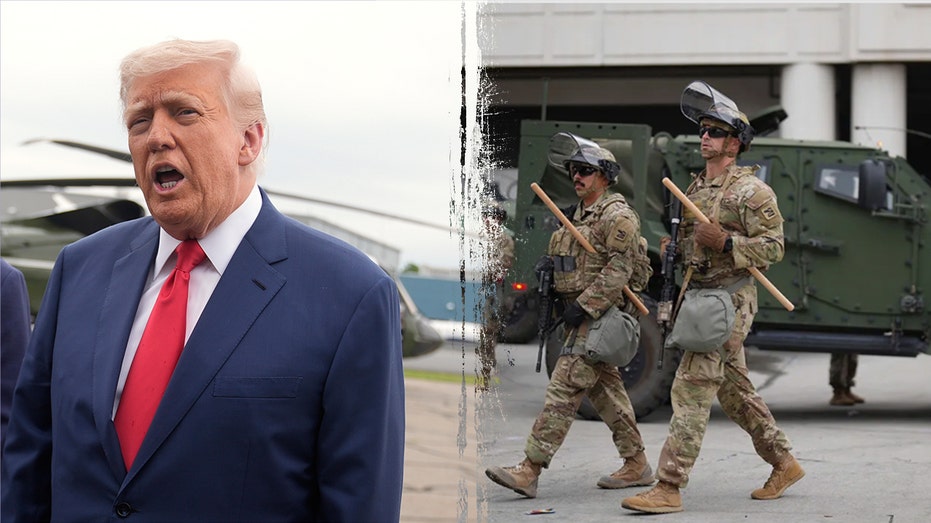Trump Meets with Military Leaders at Camp David Amid Rising Violence in Los Angeles Immigration Protests
President Trump and top officials convene at Camp David as LA riots and key international issues unfold.

President Donald Trump convened a high-level strategy session with military leaders and top Cabinet officials at Camp David on Sunday, as his administration weighs its options in response to ongoing anti-immigration enforcement riots in Los Angeles. The gathering comes amid escalating protests linked to Immigrations and Customs Enforcement (ICE) raids, with the situation in California’s largest city growing increasingly volatile.
"We’re going up to Camp David; we have meetings with various people about very major subjects," Trump said before boarding Air Force One. He confirmed that the weekend retreat would include consultations with generals and admirals, highlighting the gravity of the issues on the agenda. According to a senior White House official, this meeting is expected to set the precedent for regular off-campus retreats attended by the President and Vice President to address complex policy matters.
Vice President JD Vance, Secretary of State Marco Rubio, and Defense Secretary Pete Hegseth were among the key figures at the Camp David talks. A principal focus of the discussions was whether to order U.S. Marines into Los Angeles to support the National Guard in containing the unrest. The administration has already deployed 2,000 National Guard troops under an emergency arrangement, bypassing approval from California Governor Gavin Newsom—an unusual move underscoring the urgency of the crisis.
The President has publicly signaled his willingness to invoke the Insurrection Act, a rarely-used measure which empowers presidents to employ military forces to restore order during civil disturbances. The act allows the federal government to deploy active-duty military domestically, overriding standard limitations on military involvement in law enforcement. "They will meet on a number of issues and topics," noted a White House spokesperson, referencing the breadth of the Camp David agenda.
Trump stated that he had directed Cabinet agencies "to take all such action necessary to liberate Los Angeles from the Migrant Invasion, and put an end to these Migrant riots." The administration’s forceful rhetoric and readiness to employ further federal resources mark a pivotal moment in its response to the unrest gripping Los Angeles.
While the anti-ICE riots dominated much of the weekend’s deliberations, administration officials are also managing several other pressing policy fronts. Trade negotiations with China resumed Monday, with economic stakes high as the two nations seek resolution on longstanding disputes. In Washington, the Senate continues to debate Trump’s landmark Big Beautiful Bill Act, a sweeping spending package central to his legislative agenda.
Internationally, the White House faces critical negotiations with Iran regarding its nuclear ambitions, and President Trump is scheduled to speak with Israeli Prime Minister Benjamin Netanyahu following the Camp David retreat. The conversation will take place against the backdrop of ongoing ceasefire and hostage negotiations involving Hamas, reflecting the administration’s broad set of challenges at home and abroad.
Camp David remains a historic venue for presidential decision-making during times of national crisis. With multiple flashpoints demanding attention—from domestic unrest to high-stakes diplomacy—the outcomes from this weekend’s summit are poised to shape the administration’s approach in the weeks ahead.




